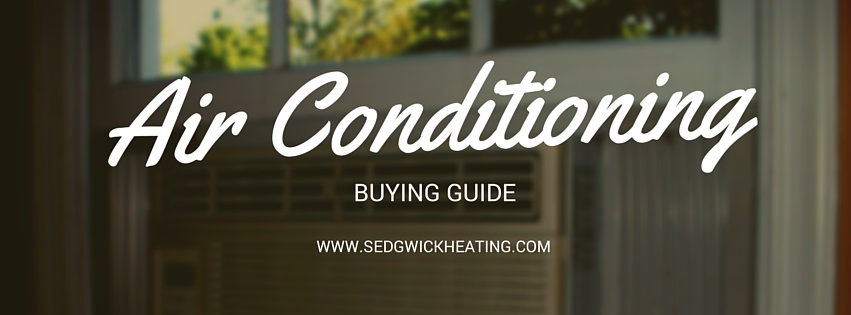Sedgwick’s Air Conditioning Buying Guide
Whether you are replacing an old air conditioner or buying your first, finding the right one for you and your home can be a difficult process. Air conditioners do more than lower the temperature space; it also dehumidifies and filters the air. All three functions are critical to appropriately cool your home.
If you don’t have a combination unit (HVAC), or want to save some money by not rerouting your existing ductwork, you can choose from four basic designs:
- Window air conditioners
- Portable air conditioners
- Built-in air conditioners
- Ductless air conditioners
These solutions are best for smaller spaces – apartments or rooms – as opposed to cooling a whole house. Aside from aesthetic preference, you will want to pick your unit based on its BTU (British thermal unit – 1055 joules). If the BTU isn’t powerful enough, adding the air conditioner to your space will be pointless. This Old House has a great calculator you can use to determine how much energy you will need to cool your room. The calculator also takes into account sun exposure, if the space is a kitchen, what level the room is on, and surrounding insulation. All of these factors should be considered when you are choosing your air conditioner because they can affect the efficacy of your unit.
The next step in choosing the best air conditioner for your space is determining energy efficiency. The federal government requires manufacturers to list the energy efficiency ratio (ERR) directly on the unit. You will pay more upfront for a more efficient air conditioner, but you will save money on your utility bills and reduce greenhouse gas emissions. If you want the greenest air conditioner available, check the Energy Star website to find Energy Star certified units that meet guidelines set by the U.S. Environmental Protection Agency.
Before purchasing your air conditioner, make sure your home’s capabilities meet the electrical requirements for your contender. Amps, voltage, and proximity of an outlet are the three biggest factors to keep in mind.
After you’ve checked off these steps, the final step comes down to personal preference. What’s more important to you – a quiet air conditioner or a more powerful one? Do you want to have remote control capabilities or the ability to program the temperature? Of course, the more items you add to your wish list the more expensive the unit will be, but you will be happier – and cooler – when you find the unit you really want.
